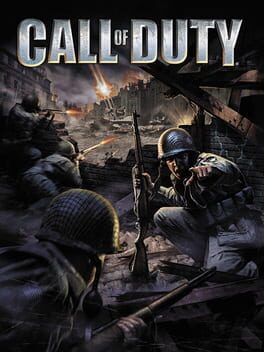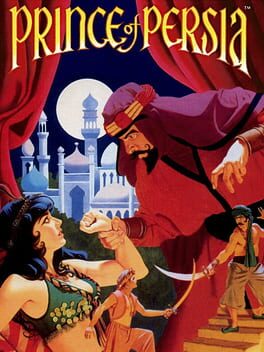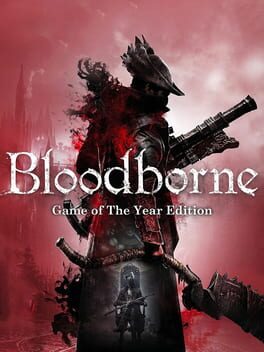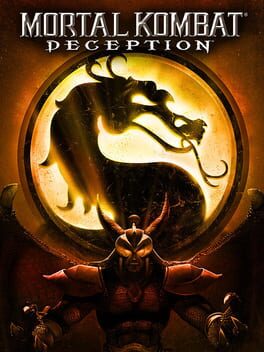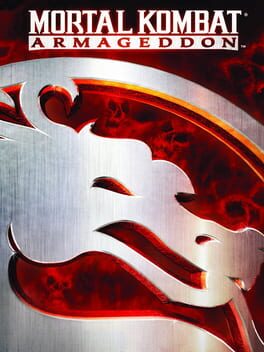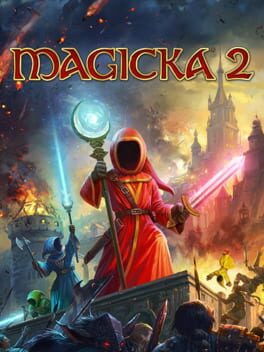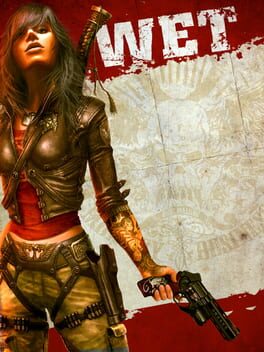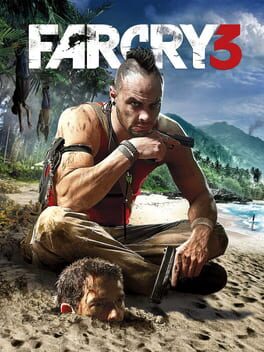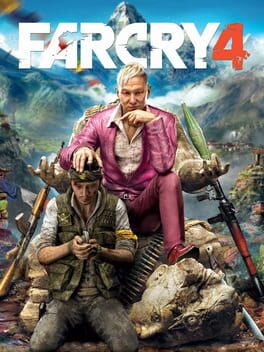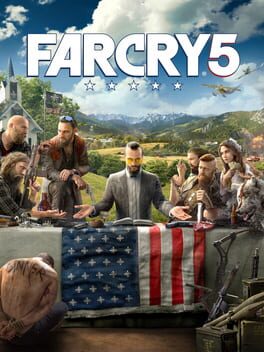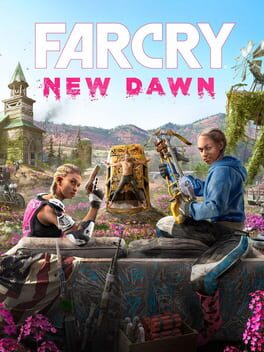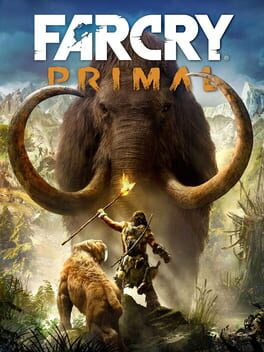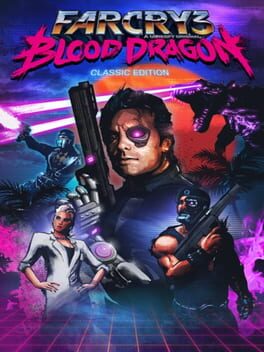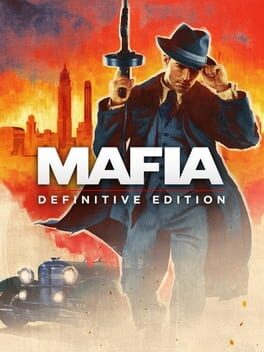Herodelic
100 Reviews liked by Herodelic
Call of Duty
2003
"Call of Duty" marked the beginning of what would become an iconic and never-ending franchise in the video game industry. It set itself apart with a great World War II campaign that brought the brutal reality of war to life in a way that not many games managed to do so.
The game’s campaign was a standout for its length and difficulty, challenging players with missions that required strategic thinking and quick reflexes. Set across various European theaters of war, players experienced the visceral intensity of battle from the perspectives of American, British, and Soviet soldiers.
The difficulty of the game was a point of praise. It did not shy away from presenting a challenging experience. The satisfaction derived from completing tough missions contributed significantly to the game's replay value.
The launch of "Call of Duty" in 2003 laid the foundation for a franchise that would go on to explore various other eras and conflicts, but it in my eyes, this is THE Call of Duty. The one that stays true to its name.
The game’s campaign was a standout for its length and difficulty, challenging players with missions that required strategic thinking and quick reflexes. Set across various European theaters of war, players experienced the visceral intensity of battle from the perspectives of American, British, and Soviet soldiers.
The difficulty of the game was a point of praise. It did not shy away from presenting a challenging experience. The satisfaction derived from completing tough missions contributed significantly to the game's replay value.
The launch of "Call of Duty" in 2003 laid the foundation for a franchise that would go on to explore various other eras and conflicts, but it in my eyes, this is THE Call of Duty. The one that stays true to its name.
Prince of Persia
1989
Prince of Persia has no age, a timeless game, a game ahead of its time.
A hardware and technical masterpiece for that time, the way they recorded the animations, the way some pixels on a screen expressed such an atmosphere and the way the 8bit soundtrack sounded so hypnotising.
I feel like its one of the games we all played at some point in our life.
Crazy to think that if this game didn't exist, neither would have Assassin's Creed existed.
A hardware and technical masterpiece for that time, the way they recorded the animations, the way some pixels on a screen expressed such an atmosphere and the way the 8bit soundtrack sounded so hypnotising.
I feel like its one of the games we all played at some point in our life.
Crazy to think that if this game didn't exist, neither would have Assassin's Creed existed.
OO VENATOOOR
Beatus Sanctus
Bonum fati par dia.
Domus aeternus fiat morte
Erit sanguinem opulentuuum
This is Bloodborne, the best PlayStation exclusive in my opinion.
So, it was my first FromSoftware game and man, i loved it!
FromSoftware really nailed the atmosphere in this one, a combo of Gothic ,Victorian and Lovecraftian horror.
The soundtrack.. my God what a soundtrack.. its art, nothing else.
I gotta be honest though, The Old Hunters dlc is what makes this game a complete masterpiece. Its definitely one of the best DLCs ever.
Without this DLC this would still be a great game but it wouldn't be on this level.
The game itself was very easy, the easiest in the series (alongside Demon's Souls), no boss fight took me more than 5 tries, and it was my first FromSoftware game like i said.
Personally i dont want a remaster/remake, i'd rather have Bloodborne II but maybe we can have them both at some point.
Beatus Sanctus
Bonum fati par dia.
Domus aeternus fiat morte
Erit sanguinem opulentuuum
This is Bloodborne, the best PlayStation exclusive in my opinion.
So, it was my first FromSoftware game and man, i loved it!
FromSoftware really nailed the atmosphere in this one, a combo of Gothic ,Victorian and Lovecraftian horror.
The soundtrack.. my God what a soundtrack.. its art, nothing else.
I gotta be honest though, The Old Hunters dlc is what makes this game a complete masterpiece. Its definitely one of the best DLCs ever.
Without this DLC this would still be a great game but it wouldn't be on this level.
The game itself was very easy, the easiest in the series (alongside Demon's Souls), no boss fight took me more than 5 tries, and it was my first FromSoftware game like i said.
Personally i dont want a remaster/remake, i'd rather have Bloodborne II but maybe we can have them both at some point.
MK Deception brings memories to me, it was the best MK out of the 3D era ones. Huge improvement from Deadly Alliance which was pretty bad.
That intro where Onaga is introduced as the new main Villain is awesome, Raiden joins forces with the Deadly Alliance but they still can't even get a scratch on Onaga, what a great way to present a new kharacter.
The Konquest mode is where its at in this game. It was such a great adventure, exploring all the realms (Netherrealm, Earthrealm, Edenia, Outworld, Chaos Realm and Order Realm) in third person while doing quests. A game within a game, truly something to remember. I remember some of the voice acting was so atrocious it was actually funny:))
And while Shujinko wasn't the best kharacter ever, it was still cool to see him go from a child to an old master on his search for the Kamidogu.
Its definitely a top 5-3 in the MK Series and i wish they bringed back the Konquest mode.
That intro where Onaga is introduced as the new main Villain is awesome, Raiden joins forces with the Deadly Alliance but they still can't even get a scratch on Onaga, what a great way to present a new kharacter.
The Konquest mode is where its at in this game. It was such a great adventure, exploring all the realms (Netherrealm, Earthrealm, Edenia, Outworld, Chaos Realm and Order Realm) in third person while doing quests. A game within a game, truly something to remember. I remember some of the voice acting was so atrocious it was actually funny:))
And while Shujinko wasn't the best kharacter ever, it was still cool to see him go from a child to an old master on his search for the Kamidogu.
Its definitely a top 5-3 in the MK Series and i wish they bringed back the Konquest mode.
MK Armageddon was always a game with mixed reviews. Personally i really liked this game back in the day, and now when im looking at it again, i still like it :) (it might be nostalgia tho)
Sure, this game wasn't top tier and had some bad things in it like the stance or Kreate a Fatality feature.
On the other hand, it had another Konquest mode which was decent, Motor Kombat which i thought was really funny, Kreate-a-Fighter which was the only time this feature was present in any MK game and 64 Fighters! Everyone was present in this game.
That being said, MK Armageddon was a fun game where you wouldn't get bored easily.
Sure, this game wasn't top tier and had some bad things in it like the stance or Kreate a Fatality feature.
On the other hand, it had another Konquest mode which was decent, Motor Kombat which i thought was really funny, Kreate-a-Fighter which was the only time this feature was present in any MK game and 64 Fighters! Everyone was present in this game.
That being said, MK Armageddon was a fun game where you wouldn't get bored easily.
Magicka 2
2015
I had fun playing this with a friend on Bananas difficulty, the campaign was pretty easy, however the challenges were quite difficult.
Its a cool game if you like games with the top down view, the gameplay is good, you cast and combine many elements into one spell and you can do a lot of awesome combinations.
Its a cool game if you like games with the top down view, the gameplay is good, you cast and combine many elements into one spell and you can do a lot of awesome combinations.
Wet
2009
WET is a nice idea but a bad execution, its one of the games that uses the "piss filter" and it looks really bad.
The story is poor , soulless and it lacks depth. The only redeeming feature is the protagonist, Rubi, who looks cool but has a flat personality. The gameplay is good (when it wants to work properly), let's say its a combination between maybe Stranglehold/Max Payne (the shooting) and Prince of Persia (the wall running and climbing) but its a bit of a stretch.
I enjoyed the two chapters set on the highway where you jump from one car to another, as well as the sections where Rubi enters her Rage vision, turning everything red, white, and black and... that's about it? I guess... beyond that, there isn’t much to praise.
The soundtrack is nice, although I would have preferred a more metal-oriented selection to make the game feel more alive. Still, i can dig the soundtrack, it's alright.
Achieving the Platinum was an awful and tedious experience, requiring five playthroughs. This is not the kind of game you'd want to replay that many times.
The story is poor , soulless and it lacks depth. The only redeeming feature is the protagonist, Rubi, who looks cool but has a flat personality. The gameplay is good (when it wants to work properly), let's say its a combination between maybe Stranglehold/Max Payne (the shooting) and Prince of Persia (the wall running and climbing) but its a bit of a stretch.
I enjoyed the two chapters set on the highway where you jump from one car to another, as well as the sections where Rubi enters her Rage vision, turning everything red, white, and black and... that's about it? I guess... beyond that, there isn’t much to praise.
The soundtrack is nice, although I would have preferred a more metal-oriented selection to make the game feel more alive. Still, i can dig the soundtrack, it's alright.
Achieving the Platinum was an awful and tedious experience, requiring five playthroughs. This is not the kind of game you'd want to replay that many times.
Far Cry 3
2012
Ah yes, back when Ubisoft was passionate about their games.
Far Cry 3 was crazy good when it was released, everyone i knew was playing it:)))
It was a BIG change from Far Cry 2, they got it so right that they decided to release 5 more games just like FC3 💀
The story was engaging, featuring one of the most popular antagonists in gaming (Vaas) and the setting was stunning, an island archipelago filled with wild nature and dangerous pirates.
The soundtrack was great, the mission where you burn the weed plantations while "Make it Bun Dem" plays in the background is arguably the best mission in the series.
Far Cry 3 was a great sandbox with lots of freedom and many things to get lost into while exploring the wilderness and killing pirates while avenging your friends.
Far Cry 3 was crazy good when it was released, everyone i knew was playing it:)))
It was a BIG change from Far Cry 2, they got it so right that they decided to release 5 more games just like FC3 💀
The story was engaging, featuring one of the most popular antagonists in gaming (Vaas) and the setting was stunning, an island archipelago filled with wild nature and dangerous pirates.
The soundtrack was great, the mission where you burn the weed plantations while "Make it Bun Dem" plays in the background is arguably the best mission in the series.
Far Cry 3 was a great sandbox with lots of freedom and many things to get lost into while exploring the wilderness and killing pirates while avenging your friends.
Far Cry 4
2014
Far Cry 4 was shortly released after Far Cry 3, they were working on both games at some point.
This one didn't bring many different things to the table but man the setting was awesome, Kyrat was very fun to explore and Pagan Min was a good character ( its a shame he doesn't appear more ).
Its definitely one of the most breathtaking open worlds, The Himalayan Mountains and the calming buddhist & hindu ambient added a lot to the overall experience.
The variety of the wildlife was insane, at every corner you would stumble against a tiger, a rhino, a bear or an elephant (Riding elephants was fun).
Somehow the most dangerous thing in this game was the mf honey badger:))))
The part of the game where you go higher in the Mountains and breathing becomes harder because of the lack of oxygen was nice, ohhh and the Shangri-La missions, i know many didn't like them but i loved them!
The radio stations were good, Radio Free Kyrat was funny:)
Overall, i prefer Far Cry 4 over Far Cry 3 but that's a just a preference, I like that part of the world and that culture more, but both are great games.
This one didn't bring many different things to the table but man the setting was awesome, Kyrat was very fun to explore and Pagan Min was a good character ( its a shame he doesn't appear more ).
Its definitely one of the most breathtaking open worlds, The Himalayan Mountains and the calming buddhist & hindu ambient added a lot to the overall experience.
The variety of the wildlife was insane, at every corner you would stumble against a tiger, a rhino, a bear or an elephant (Riding elephants was fun).
Somehow the most dangerous thing in this game was the mf honey badger:))))
The part of the game where you go higher in the Mountains and breathing becomes harder because of the lack of oxygen was nice, ohhh and the Shangri-La missions, i know many didn't like them but i loved them!
The radio stations were good, Radio Free Kyrat was funny:)
Overall, i prefer Far Cry 4 over Far Cry 3 but that's a just a preference, I like that part of the world and that culture more, but both are great games.
Far Cry 5
2018
Far Cry 5... While this game didn't revolutionize anything, it was fun. I got it at launch and i spent over 100 hours in it. i'd say a good % of these hours were spent in the map editor mode.
That mode was really creative and fun, it was almost like you had many different games within one. People made lots of cool stuff with the level editor.
Now for the main game,
Hope County was charming; like an american country side painted beautifully. It felt like a good open world with fun gameplay. It had a decent story with good antagonists. Joseph was a mysterious character and it kept me interested in where the story is going. Faith too, she was interesting and i liked her psychedelic mission.
Solid game overall, I enjoyed all my time with it. This was probably the last good Far Cry, after this one everything went downhill.
That mode was really creative and fun, it was almost like you had many different games within one. People made lots of cool stuff with the level editor.
Now for the main game,
Hope County was charming; like an american country side painted beautifully. It felt like a good open world with fun gameplay. It had a decent story with good antagonists. Joseph was a mysterious character and it kept me interested in where the story is going. Faith too, she was interesting and i liked her psychedelic mission.
Solid game overall, I enjoyed all my time with it. This was probably the last good Far Cry, after this one everything went downhill.
Far Cry New Dawn
2019
This was a cashgrab, the aftermath of Far Cry 5 that wasn't needed.
More of the same, but with pink flowers now! The two antagonists were crap, I dont even remember their name:)))
The Gameplay didn't work, the new rpg-ish additions were rubbish and they made clearing outposts not fun anymore.
Nothing really memorable about this game, its just another Far Cry, a mediocre one that can be skipped.
More of the same, but with pink flowers now! The two antagonists were crap, I dont even remember their name:)))
The Gameplay didn't work, the new rpg-ish additions were rubbish and they made clearing outposts not fun anymore.
Nothing really memorable about this game, its just another Far Cry, a mediocre one that can be skipped.
Far Cry: Primal
2016
This was my first platinum trophy back in 2017.
I've heard many people hating on this game and i don't get why, its a good game with a theme that's rarely used, so the more unique the better.
Far Cry Primal is set in 10.000BC, around the Carpathian Mountains which is a nice touch for me as a Romanian. There's not many games based on prehistoric times, and i liked it a lot, it was refreshing to see and play.
I think Ubisoft did the most that could've been done with the story, im glad that they used a fictional language called "Wenja" and that the game wasn't in english.
The gameplay was fun. Everything being primitive, from the weapons to the tools, added a unique twist to the familiar Far Cry formula. Despite retaining the core mechanics of the series, Far Cry Primal feels like a distinct experience. The ability to tame and command beasts was a enjoyable feature. Having a sabertooth tiger, a mammoth, or a bear as your companion and even riding them brings an exhilarating dynamic to the gameplay.
Exploring the map was engaging and the sorroundings were beautiful.
All in all, I think this is an underrated game and its a cool experience.
I've heard many people hating on this game and i don't get why, its a good game with a theme that's rarely used, so the more unique the better.
Far Cry Primal is set in 10.000BC, around the Carpathian Mountains which is a nice touch for me as a Romanian. There's not many games based on prehistoric times, and i liked it a lot, it was refreshing to see and play.
I think Ubisoft did the most that could've been done with the story, im glad that they used a fictional language called "Wenja" and that the game wasn't in english.
The gameplay was fun. Everything being primitive, from the weapons to the tools, added a unique twist to the familiar Far Cry formula. Despite retaining the core mechanics of the series, Far Cry Primal feels like a distinct experience. The ability to tame and command beasts was a enjoyable feature. Having a sabertooth tiger, a mammoth, or a bear as your companion and even riding them brings an exhilarating dynamic to the gameplay.
Exploring the map was engaging and the sorroundings were beautiful.
All in all, I think this is an underrated game and its a cool experience.
Blood Dragon is just a game being a game, and its a great one!
So, this standalone DLC little thing of FC3 is actually my favorite game in the series by far.
I feel like this kind of game happens when a company takes a risk in trying to create something unique and different and it pays off.
(Another example would be RDR: Undead Nightmare or GTA IV: The Lost and Damned)
Far Cry: Blood Dragon is an alternate reality that takes place in the year 2007 in the middle of the Pacific? The game has a 80s dystopian retro-futuristic synthwave vibe to it, and its awesome.
Awesome soundtrack, cool story, pretty aesthetic , great protagonist (Rex "Power" Colt), badass reload animations, Laser-Dinosaurs, Cyber-Sharks, Robo-Dogs, neon lights, red sky and what's not in this game? xD
Haha, this game has one of the best tutorials. "To look around, look around" ; "Press X to demonstrate your ability to read" ; "Running is like walking, only faster".
The only bad thing about Blood Dragon is the fact that its too short:(
If they want to revive the Far Cry series they need to make Far Cry Blood Dragon 2!
So, this standalone DLC little thing of FC3 is actually my favorite game in the series by far.
I feel like this kind of game happens when a company takes a risk in trying to create something unique and different and it pays off.
(Another example would be RDR: Undead Nightmare or GTA IV: The Lost and Damned)
Far Cry: Blood Dragon is an alternate reality that takes place in the year 2007 in the middle of the Pacific? The game has a 80s dystopian retro-futuristic synthwave vibe to it, and its awesome.
Awesome soundtrack, cool story, pretty aesthetic , great protagonist (Rex "Power" Colt), badass reload animations, Laser-Dinosaurs, Cyber-Sharks, Robo-Dogs, neon lights, red sky and what's not in this game? xD
Haha, this game has one of the best tutorials. "To look around, look around" ; "Press X to demonstrate your ability to read" ; "Running is like walking, only faster".
The only bad thing about Blood Dragon is the fact that its too short:(
If they want to revive the Far Cry series they need to make Far Cry Blood Dragon 2!
This is exactly how you do a Remake!
You keep everything that made the original good and you modernise it in such a way that you don't ruin the atmosphere and general feeling of the first.
I'm glad they did this remake because i never finished the original from 2002.
Given the advancements in gaming technology and storytelling, this remake was certainly overdue and is a welcome return to a story that captivates with its historical context.
As for the gameplay, it maintains its classic narrative, which is as compelling now as it was in the original. The driving mechanics stand out as an interesting feature; they certainly add a unique flavor to the game, although im not sure how great it actually is. It might be because i played on Classic difficulty.
The shooting mechanics didn’t impress me as much, feeling somewhat mediocre. Again, this might be heavily influenced by the Classic difficulty setting, which is intended to provide a more difficult experience.
One of the most impressive achievements of this remake is how it recaptures the ambiance of the 1930s. The setting, the music, the costumes, and the dialogues all combine to create a rich environment that transports players back in time.
Overall, this remake is a prime example of how to rejuvenate a beloved classic without compromising its core elements and it also stands as a testament to how classic games should be revitalized, by making them accessible and enjoyable for a new generation of gamers.
You keep everything that made the original good and you modernise it in such a way that you don't ruin the atmosphere and general feeling of the first.
I'm glad they did this remake because i never finished the original from 2002.
Given the advancements in gaming technology and storytelling, this remake was certainly overdue and is a welcome return to a story that captivates with its historical context.
As for the gameplay, it maintains its classic narrative, which is as compelling now as it was in the original. The driving mechanics stand out as an interesting feature; they certainly add a unique flavor to the game, although im not sure how great it actually is. It might be because i played on Classic difficulty.
The shooting mechanics didn’t impress me as much, feeling somewhat mediocre. Again, this might be heavily influenced by the Classic difficulty setting, which is intended to provide a more difficult experience.
One of the most impressive achievements of this remake is how it recaptures the ambiance of the 1930s. The setting, the music, the costumes, and the dialogues all combine to create a rich environment that transports players back in time.
Overall, this remake is a prime example of how to rejuvenate a beloved classic without compromising its core elements and it also stands as a testament to how classic games should be revitalized, by making them accessible and enjoyable for a new generation of gamers.
